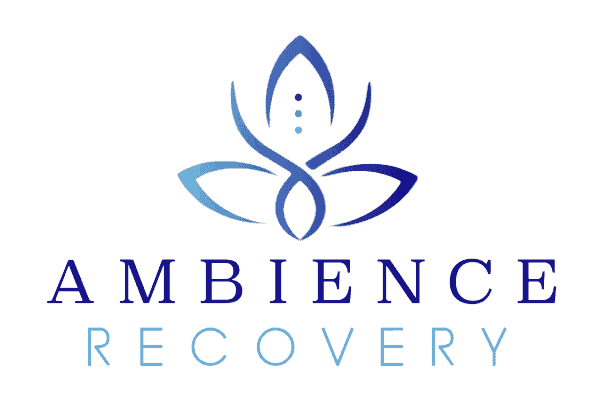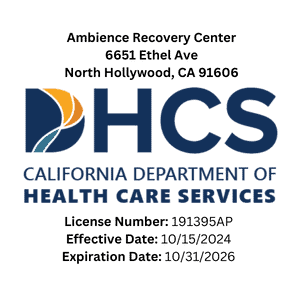Key Takeaways
-
HALT stands for Hungry, Angry, Lonely, and Tired—four common internal states that often trigger relapse.
-
These states can cause strong cravings and lower the ability to make healthy choices.
-
Learning to recognize and manage HALT triggers helps people in recovery stay on track.
-
Self-care, daily check-ins, and support systems are key tools for relapse prevention.
-
Ambience Recovery offers treatment plans that help clients identify triggers and develop healthy coping skills.
Introduction to Identifying Triggers in Addiction Reccovery
When someone is recovering from addiction, staying sober takes more than just avoiding drugs or alcohol. It also means learning to manage emotions and physical needs—especially the ones that can sneak up and make a person vulnerable to relapse.
That’s where the HALT method comes in. HALT stands for Hungry, Angry, Lonely, and Tired. These are four simple but powerful triggers that can affect your mood, thinking, and choices. They may not seem like a big deal on their own, but when combined—or ignored—they can open the door to cravings and risky behavior.
In this article, we’ll explain each HALT trigger, how they influence addiction recovery, and how to deal with them in healthy, practical ways.
What Are Alcohol & Drug Addiction Triggers?
Addiction triggers are anything—internal or external—that cause someone to think about or crave substances. Triggers can include people, places, stress, emotions, or even hunger and fatigue. Everyone in recovery has personal triggers, and learning to identify and manage them is part of staying sober.
Some triggers are easy to spot. For example, walking into a party where people are drinking. But others, like feeling lonely or tired, can sneak in unnoticed. These internal triggers are just as important to manage—and that’s why HALT is such a helpful tool.
Understanding the HALT Triggers (Acronym For Hungry, Angry, Lonely, Tired)
Each letter in HALT points to a state that can increase the risk of relapse. Let’s take a closer look at what they mean.
Hungry
Hunger doesn’t just affect your body—it affects your mind. When your blood sugar drops, you can feel shaky, moody, or tired. You may even confuse hunger with emotional distress. Some people in recovery mistake the physical discomfort of hunger for anxiety or sadness, which can trigger cravings.
Skipping meals or eating unhealthy food can make it harder to think clearly and make good choices. That’s why it’s important to eat regular, balanced meals and stay hydrated throughout the day.
Angry
Anger is a strong emotion. It can build up quickly, and if it’s not managed in a healthy way, it can lead to impulsive behavior. People in recovery may feel anger about their past, their relationships, or their current struggles. That’s normal—but if that anger isn’t expressed or released safely, it can be a major relapse trigger.
Finding safe ways to express anger—like journaling, talking to a therapist, or doing physical activity—can help relieve pressure and prevent it from boiling over.
Lonely
Loneliness is one of the most common triggers in recovery. Addiction often isolates people, and early recovery can feel lonely, too. When someone feels alone or disconnected, they may start to believe that no one understands them, or that they don’t belong.
That can lead to dangerous thinking: “What’s the point?” or “No one cares if I stay sober.”
Staying connected to support groups, friends, family, or a sponsor can reduce feelings of isolation. Even a quick phone call or text can remind you that you’re not alone.
Tired
Fatigue can be a sneaky trigger. When you’re tired, you’re more likely to be irritable, forgetful, or stressed. You might not handle challenges as well as usual. Sleep problems are common in early recovery, so this one can show up often.
Being tired also weakens your ability to resist cravings or make smart decisions. That’s why sleep is so important in recovery. A consistent sleep routine helps your brain and body heal.
Why Acronym HALT Triggers Are Easy to Miss
The problem with HALT states is that they can feel normal or even harmless—at least at first. But together, they create a dangerous mix. Someone who is hungry, angry, lonely, and tired all at once may feel overwhelmed or hopeless. They may start thinking about using as a way to feel better.
That’s why it’s important to check in with yourself regularly. Ask, “Am I hungry? Am I angry? Am I lonely? Am I tired?” This simple habit can help you catch early warning signs before they build into something harder to manage.
Managing HALT Triggers in Daily Life For Substance Use Disorder Prevention
There’s no way to avoid these feelings completely. Everyone gets tired or frustrated sometimes. The key is to recognize what’s happening and respond in a healthy way.
Here are some ideas for managing HALT triggers:
-
Hungry? Eat a healthy snack or meal. Keep nutritious foods available, especially when you’re busy.
-
Angry? Talk to someone you trust. Take deep breaths. Go for a walk. Write in a journal.
-
Lonely? Reach out to a friend, join a support group, or talk to a sponsor. Don’t isolate.
-
Tired? Take a nap if possible. Set a regular bedtime. Turn off screens before bed. Let your body rest.
Adding a HALT check-in to your routine can help you take care of your needs before cravings begin.
How HALT Fits into Your Recovery Plan During Your Treatment Program
HALT is a tool—not a cure. It works best when combined with a full recovery plan that includes:
-
Therapy or counseling to work through emotional triggers
-
A structured routine that includes meals, rest, and downtime
-
Support groups for connection and accountability
-
Healthy hobbies and activities to reduce stress
-
Self-awareness practices like journaling or mindfulness
At Ambience Recovery, we help clients understand their triggers and build skills to manage them. Our programs combine therapy, support, and education so clients can feel confident in their recovery journey.
Conclusion: HALT Can Help You Stay on Track
Relapse doesn’t happen all at once. It starts with small moments—feeling angry, missing meals, staying up too late, or feeling alone. These emotions are part of life, but if they go unchecked, they can lead to cravings and poor decisions.
Using HALT as a daily tool helps you recognize when you’re at risk and take steps to protect your sobriety. It’s simple but powerful—and it works.
If you or someone you love is struggling with addiction triggers or needs help staying on track, call Ambience Recovery at 866-721-7470. We’re here to support your recovery and help you live a healthy, sober life.
FAQs About HALT Relapse Triggers in Recovery
What is the HALT method and how does the HALT method help prevent relapse?
The HALT method is an acronym that stands for Hungry, Angry, Lonely, and Tired. It helps people in recovery identify triggers that may increase the risk of relapse by recognizing their emotional state and physical needs. By addressing these core areas, individuals can develop healthy coping mechanisms to manage potential stressors effectively.
What are some common internal triggers for relapse for people in recovery?
Internal triggers are emotional states that can lead to substance use. Common internal triggers include feelings of irritability, anxiety, depression, or loneliness. Recognizing these emotional triggers is crucial for someone in recovery, as they can significantly increase the risk of relapse.
How can I identify external triggers that may lead to an increased risk of relapse?
External triggers are environmental factors or situations that can provoke cravings or temptations to use substances. These may include certain social settings, people who use drugs or alcohol, or places associated with past substance use. Identifying these triggers is part of the recovery process, allowing individuals to develop strategies to avoid or manage them.
What role does a support system play in preventing relapse?
A strong support system is vital for preventing relapse among people in recovery. Having a network of others in recovery, friends, family, or support groups provides emotional backing, accountability, and encouragement. This supportive environment can help individuals cope with stressors and maintain their commitment to sobriety.
What healthy coping skills are effective for managing triggers?
Effective coping skills for managing triggers include mindfulness practices, engaging in physical activity, journaling, or talking to a friend or therapist. These healthy coping mechanisms can help individuals regulate their emotional state and reduce the urge to use drugs or alcohol when faced with triggers.
How does behavioral therapy assist in addiction recovery?
Behavioral therapy is an essential component of addiction treatment that helps individuals understand and change their thought patterns and behaviors related to substance use. It equips them with coping strategies to deal with triggers and stressors, ultimately reducing the risk of relapse.
Can stressors from daily life trigger a relapse from an emotional state?
Yes, stressors from daily life, such as work pressure, relationship issues, or financial troubles, can significantly increase the risk of relapse. Learning to manage these stressors through healthy coping strategies is crucial for maintaining sobriety and preventing relapse in individuals with a substance use disorder.
What should I do if I recognize a stage of relapse?
If you recognize you are in a stage of relapse, it’s important to reach out for help immediately. Contact your support system, attend a recovery meeting, or speak with a therapist to discuss your feelings and triggers. Taking proactive steps to address your emotional state can help prevent a full relapse.
Why is it important to avoid certain emotional triggers in recovery?
Avoiding certain triggers is important because they can lead to cravings and increase the risk of relapse. By identifying and managing these triggers, individuals can create a safer environment for themselves, allowing for a more stable recovery journey.
Resources For Common Triggers & Relapse Prevention
https://www.aeaweb.org/articles?id=10.1257/0002828043052222
https://pmc.ncbi.nlm.nih.gov/articles/PMC4553654/
Katie is a Licensed Clinical Social Worker who has worked as a primary therapist, supervisor, and now clinical director for SUD/MH treatment centers for the past 12 years. Katie is trained in Brainspotting, EMDR, Internal Family Systems and Dialectical Behavior Therapy and is passionate about treating substance use disorders, trauma and grief.






